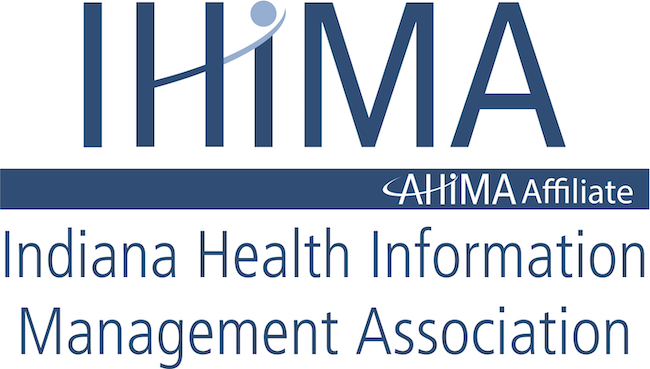IHIMA 2025 Virtual Winter ConferenceThe IHIMA 2025 Virtual Winter Conference will be held on Friday, February 7th. Registration is open until February 5th! REGISTER NOW! WINTER CONFERENCE PROGRAM BROCHUREAGENDA 8:30 AM EST - 9:00 AM ESTGet connected to Zoom. Grab your cup of coffee and get ready to learn!
9:00 AM EST - 9:55 AM EST Dianna Foley, RHIA, CCS, CHPS, CDIP Review the 2025 CPT code updates with this informative webinar. We will explore many of the over 400 changes occurring in CPT for 2025. These will include general surgery codes that address skin graft wound care and abdominal tumor elimination. As usual, there are a number of new Category III CPT codes that will be added, and details will be provided so that coding professionals have a greater understanding of these codes. Attendees will come away from the presentation with:
10:00 AM EST - 10:55 AM EST Auditing the AI Autonomous Coder Amber Berryman, MBA, RHIA, CDIP LaSha Coffer, MSHSM, RHIA Artificial Intelligence is being utilized by healthcare organizations in many forms, such as: Natural Language Processing, Deep Language Learning, Machine Learning, and Generative Artificial Intelligence. Specifically, in the middle revenue cycle space, the role of the coder is changing to require top-of-license expertise. While autonomous coding is the future, the concern for quality becomes paramount as a new responsibility of the traditional coder. The course will help coding managers, coders, auditors, and educators understand these new responsibilities and develop best auditing practices of autonomous coding. This course will also highlight auditing data and analysis for future education plans. Learning Objectives:
11:00 AM EST - 11:55 AM EST What Are Clinical Validation Denials? How To Recognize & Improve: How Does QIO Affect Your Claim? Dorothy Steed, MSLD, CCS, CDIP, COC, CPCO, CPUM, CPUR, CPHM, CPMA, ACS-OP, CCS-P, RCC, RMC, CEMC, CPC-I, CFPC, PCS, FCS, CRCR, CICA, CPAR 12:00 PM EST - 1:00 PM EST Lunch Break Preethi Fernando All it takes is one toxic employee to run wild and before you know it, the workplace gets od’d by division, manipulation, low morale, burnout, and time waste. Toxic employees are infectious. Beware. Like Carbon monoxide poisoning, toxicity does its damage, silently. Catch it early. Bring out the toxicity into the open without delay. Warn the person the damage the behavior is causing. If everything in the book has been tried to understand, negotiate, and work with a toxic person, and nothing has changed for a long time it may be time to quit from toxicity and walk away. Find a new environment where your self-worth is valued. Trying to fix a toxic person is an emotionally exhausting experience. Mindfulness, quiet reflection, retreats to rejuvenate, and getting attuned with one’s self are powerful mental health techniques to heal from toxins. Confront the toxicity by copying a third person on those e-mails, having a third person physically present during sensitive conversations, and opting out of their group chats. Setting boundaries, saying no, limiting time around them, and sometimes completely getting untangled from their mental holds can be very effective for self-care. 2:00 PM EST – 2:55 PM EST Strategies for Health Information Leadership: Overcoming Staffing Challenges Darin Challacombe, Ph.D., SHRM-CP Elizabeth McElhiney, MHA, CHPS, CPHIMS Healthcare is undergoing a profound transformation, with most U.S. health systems struggling with high turnover, evolving work models, and low employee engagement. While these models offer flexibility for staff, they also face skepticism about productivity, collaboration and trustworthiness. This session will delve into the challenges faced by health information leaders including understaffing, skill gaps, and fluctuating workloads. Attendees will gain a comprehensive understanding of these issues and discover innovative solutions to help leaders overcome these universal challenges. Don't miss this opportunity to stay ahead and lead your organization toward a successful and productive future.
3:55 PM EST - 4:00 PM EST LOCATION The IHIMA Virtual Winter Conference is completely virtual. There is no in-person option. HANDOUTS & ACCESS By 5:00 PM EST on Monday, February 3rd, registrants will receive instructions via email for accessing slides and Zoom. Full payment must be received before access to the event is provided. CE CREDITS This program meets the AHIMA CE Guidelines for up to 6 hours of continuing education. AHIMA CEUs are also accepted by the AAPC! Check eligibility on the AAPC website. CEUs will be uploaded into your IHIMA profile (My CEUs under the Member Menu) one week after the conference. There within your profile, you can download or save a report of your CEUs. Please note that you’ll still need to enter your CEUs in your AHIMA CEU Center (they will NOT transfer automatically). We recommend entering all the IHIMA 2025 Virtual Winter Conference CEUs as one entry: “IHIMA 2025 Winter Conference” and the total # of CEUs earned. Choose the domain that covers most of them. Then, keep the CEU detail in your IHIMA profile. Any questions - contact the IHIMA Central Office. REGISTRATION & PAYMENT Registration Rates:
Full-Day Registration:
Half-Day Registration:
Registration is fully online. Credit cards and debit cards (Mastercard, VISA, AMEX, Discover) are accepted forms of payment for registration. REGISTER NOW!CANCELLATION POLICY Speakers/sessions may be subject to change without notice. Registration fees will be refunded at 100% if notice is received by January 30, 2025. Cancellations received on or after January 31, 2025 will not receive a refund. Any questions, contact the IHIMA Central Office. Follow the IHIMA Virtual Winter Conference on social media using #IHIMA2025WinterConference!
|
